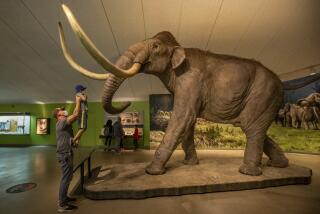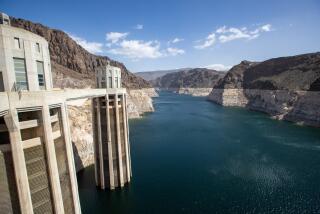NATURE
- Share via
A GREEN HISTORY OF THE WORLD by Clive Ponting (St. Martin’s: $24.95; 448 pp.) Echoing events in contemporary planetary society, in the smallish world of academic historians a nascent revisionist school now examines and tries to explain the dynamics of past civilizations in terms of their relationships with their environment. “A Green History of the World” is not quite that, nor is Ponting (of the University College, Swansea, England) “the first . . . professional historian” to use environmental factors to shed light on the rise and fall of civilizations, publisher’s claims notwithstanding. But shed light he does, beginning with Easter Island, moving on to the Mideast, the Mediterranean, the Indus, Mesoamerica and thence to European civilization.
In a thoroughly approachable, distinctly non-academic storytelling style, Ponting shows how human transformations of the landscape, combined with persistent growth in population, repeatedly have led to unsustainable conditions and collapse. He rightly points to the two fundamental societal transitions: first, agriculture, and much later, industrialization and its dependence on fossil energy, as the lovely sirens of potential self-destruction. His illustrated insights on the function and effects of agriculture alone are worth the price of admission. Ponting sometimes gets his facts off--forgivable given the vast ocean of them he presents--and the lack of footnotes is a bit irresponsible. But he does not pontificate or prescribe, and his scope is breathtaking.


